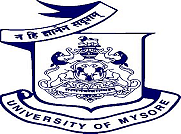Demystifying
MBA Admission Interviews: How to Ace the Process
The MBA admission at top college in Kerala interview
is a crucial step in your journey towards securing a spot in a top business
school. While the thought of facing an interview panel can be intimidating,
proper preparation and understanding of the process can significantly increase
your chances of success. In this comprehensive guide, we will demystify the MBA
admission interview and provide you with actionable tips to help you ace the
process.
Understanding
the Purpose of the MBA Admission Interview
The primary goal of the MBA admission
interview at best university in Kerala is for the admissions committee
to get to know you better beyond what is written in your application. They want
to assess your communication skills, leadership potential, and cultural fit
within their program. This is your opportunity to demonstrate your personality,
passion for business, and ability to contribute to the school's community.
Types of
MBA Admission Interviews
- On-Campus Interviews:
These are conducted at the business school's campus and may involve a
one-on-one interview or a panel interview with multiple interviewers.
- Off-Campus Interviews:
Sometimes conducted by alumni or admissions representatives in your local
area, these interviews serve the same purpose as on-campus interviews.
- Virtual Interviews:
Increasingly common, virtual interviews are conducted online via platforms
like Zoom or Skype, especially convenient for international applicants or
during times of restricted travel.
Preparation
Strategies
1. Know
Your Application Inside Out
Review every detail of your application,
including your essays, resume, and recommendations. Be prepared to elaborate on
any aspect and connect them to your future goals and reasons for pursuing an
MBA at top 5 college in Kerala.
2. Research
the School
Demonstrate your interest and fit with the
program by researching the school thoroughly. Understand its culture,
strengths, and unique aspects that appeal to you. Be prepared to discuss why
you chose this particular MBA program.
3. Practice
Common Interview Questions
Prepare responses to common MBA interview
questions such as:
- Why do you want to pursue an MBA?
- What are your short-term and long-term career goals?
- How will our MBA program help you achieve your goals?
- Tell me about a time when you demonstrated leadership.
- Describe a challenge you faced and how you overcame it.
4. Mock
Interviews
Practice mock interviews with friends, family,
or mentors to simulate the interview experience. Request constructive feedback
on your responses, body language, and overall demeanor.
5. Prepare
Questions for the Interviewers
Prepare insightful questions to ask the
interviewers. This demonstrates your genuine interest in the program and allows
you to gather valuable information about the school.
During the
Interview
1. First
Impressions Matter
Dress professionally and arrive on time (or
log in promptly for virtual interviews). Greet everyone respectfully and
maintain a positive attitude throughout the top affordable college in Kerala.
2. Body
Language and Communication
Maintain good eye contact, sit upright, and
speak clearly and confidently. Pay attention to your body language, as it
conveys a lot about your confidence and personality.
3. Be
Authentic
Be yourself during the interview. Authenticity
is valued by admissions committees, and they want to understand the real you
beyond your achievements and qualifications.
4. Highlight
Your Achievements and Experiences
Use specific examples from your professional
and personal experiences to highlight your skills, achievements, and leadership
qualities. Provide concrete evidence to support your claims.
5. Handle
Curveball Questions Gracefully
Be prepared for unexpected questions or
challenges. Take a moment to gather your thoughts before responding, and don't
hesitate to ask for clarification if needed.
After the
Interview
1. Send a
Thank-You Note
Within 24 hours of your interview, send a
personalized thank-you note to each interviewer expressing your appreciation
for their time and reaffirming your interest in the program.
2. Reflect
and Learn
Reflect on your interview performance and
identify areas where you excelled and areas for improvement. Use this
experience to refine your interview skills for future opportunities.












